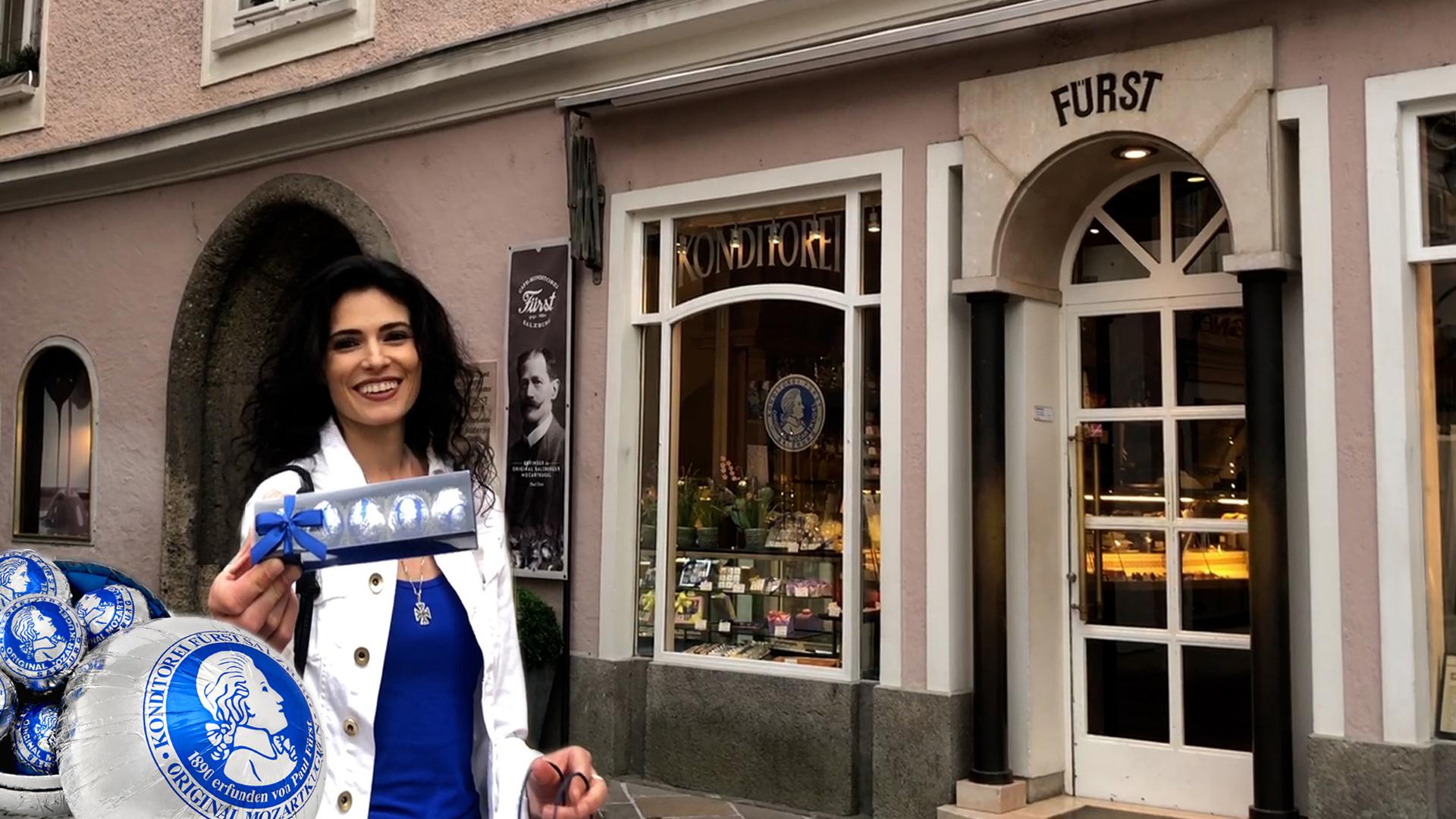
Finding Mozartkugeln isn't hard. You can find it online or at a specialty grocer. But finding authentic Mozartkugeln in Colorado, or the U.S., is nearly impossible.
"There are no preservatives, so they are really pure," according to Colorado pianist Katie Mahan in her new videoblog for "Mozart Snapshots."
A Mozartkugel is a small, dark chocolate ball filled with marzipan, pistachio and nougat wrapped in tinfoil adorned with Mozart's portrait. The problem is there are many versions of Mozartkugeln to be found.

Mahan says authentic Mozartkugeln comes from Konditorei Fürst in Salzburg. Confectioner Paul Fürst created the treat in 1890 to pay tribute to Salzburg's most famous composer in time for the 100th anniversary of his death. The bonbon's popularity took off, and imitators were quick on the scene. Fürst went to court to try to stave off the competition with only mild success. Others were allowed to imitate the candy, but only Fürst's candy could be called the "Original Salzburger Mozartkugeln."
"You see 'original' Mozartkugeln all over town and all over the world, but the only original ones are made by Fürst." Mahan has tried them all. "You can tell the difference between because the original ones are not as sweet as the mass produced ones, and the chocolate is deeper and darker."
"There's an interesting story about these chocolates when they were being made. Mr. Fürst noticed that a lot of the chocolate seemed to be disappearing and so he came up with the brilliant idea of having his workers whistle while they made the chocolates because when you're whistling you obviously can't eat. And so consequently, we have the true story of 'whistle while you work.'"
So the next time you want to pick up a few Mozartkugeln in the checkout line, just know they're an imitation of the real thing.
Listen to CPR Classical by clicking “Listen Live” at the top on this website, or download the Colorado Public Radio app. Listen on your radio to CPR Classical at 88.1 FM in Denver, or on radio signals around Colorado. You can also tell your smart speaker to “Play CPR Classical."









